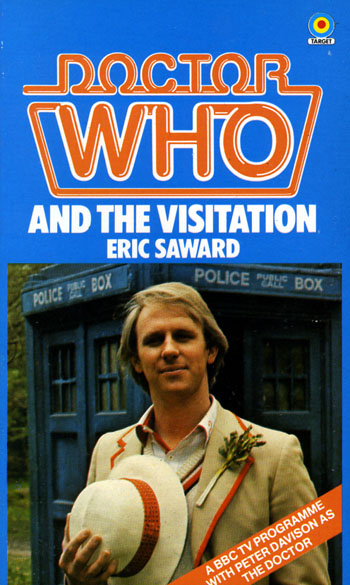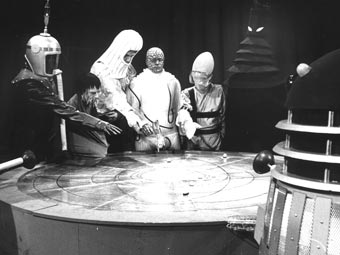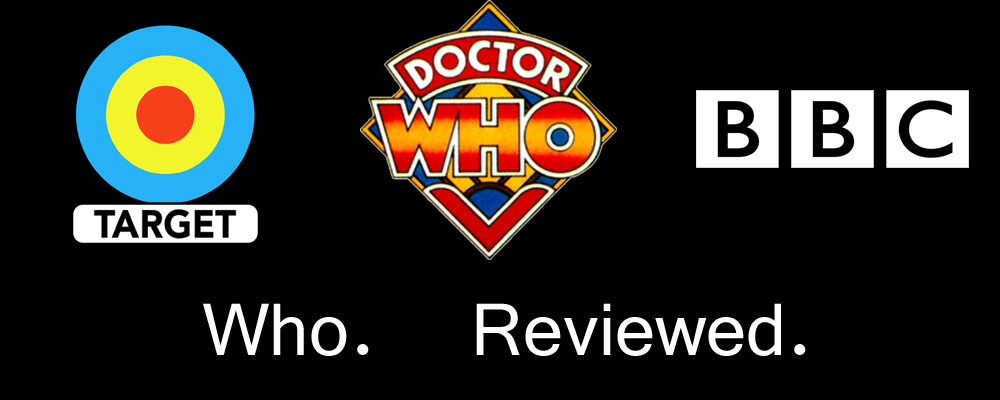 |
| Courtesy: ebay.com |
Disco android. Draw your own conclusions, but you can argue that Saward's best writing for
Doctor Who was based around androids; certainly they feature heavily in his first three scripts. The plot here, of
Earthshock as well as
Resurrection of the Daleks relies upon them but arguably only here is the android treated as a character: at the end of Episode 1, it strokes the key as it locks the crew in the house. The
Earthshock androids are brilliant as simple mechanical killers. In contrast, Stien (
Resurrection) is supposed to have much more depth but ends up being nothing more than a plot device.
The Brigadier would love the Terileptils. Despite a hit/miss design based around early animatronics, the Terileptils are a reasonably well-conceived race but poorly characterised. The concept of a warlike race treasuring art is interesting but this is mentioned only in one passage and on the whole they comes across as shouty and stereotypically evil despite a worthy back story. Doctor Who's original run featured 17 attempted Earth invasions; only the Terileptils, the Aliens from The Faceless Ones, the Kraals and the Zygons aren't immune to bullets. Combine this with a reliance on Soliton gas (what happens when their stores run out?) and suddenly they're rather lightweight. However, our last view of one suggests an era three years in the future as a Terileptil's head melts while it groans in pain.
Budget. Obviously Mace's hideout is a set taped with VT rather than a filmed stable. How in holy hell is this cheaper than just finding an appropriate stable?
Adric's hairstyle. That's all.
Actually, that's not all. It has more personality than he does, leading to...
Companion woes. There really isn't enough for all three to do, so Saward falls into the standard "out" of simply having one of them brainwashed or captured. Adric serves no plot purpose whatsoever. Due to their interplay, her seeming lack of angst, and her independent nature, you absolutely identify with Davison's assertion that he felt Nyssa fit him best as a companion. Which in turn leads to...
Eric Saward obviously had some issues. Adric's all about the teen angst. The Terileptil leader is the shoutiest villain this side of Terry Molloy. Tegan was devised as a mouthy character but just sounds bitchy. Given that this script apparently won Saward the job as script editor, you have to wonder if Jon Nathan-Turner saw this conflict and said "There's my idea for my next Doctor and companion combination", or if Saward simply specialised in bitchiness and this manifested in his work. The script drips with repressed anger; at times you can justify it and at others it's just irritating.
Davison's the best thing in this. The story says that Peter Davison took the role as The Doctor because he wanted to "mature" into a leading man - as evidenced here, it takes him about two stories. Despite some occasional delivery issues (he sometimes raises the pitch of his voice at the end of sentences, creating the implication of doubt - most notably in the Episode 3 cliffhanger) he quite compelling despite a script which sees his best lines shouted at by his opponent. He also has remarkably little to do.
This makes it
a typically Saward ending. Eric Saward was notorious for thinking the Doctor's destinations as more interesting than his actions. The serial ends with a scuffle in which the bakery is accidentally set alight - The Doctor does nothing to really inspire a conclusion. The same can be said in later Saward stories like Earthshock, Attack of the Cybermen and Revelation of the Daleks.
Rating: 3.
In four words: Sets the Saward standard.




